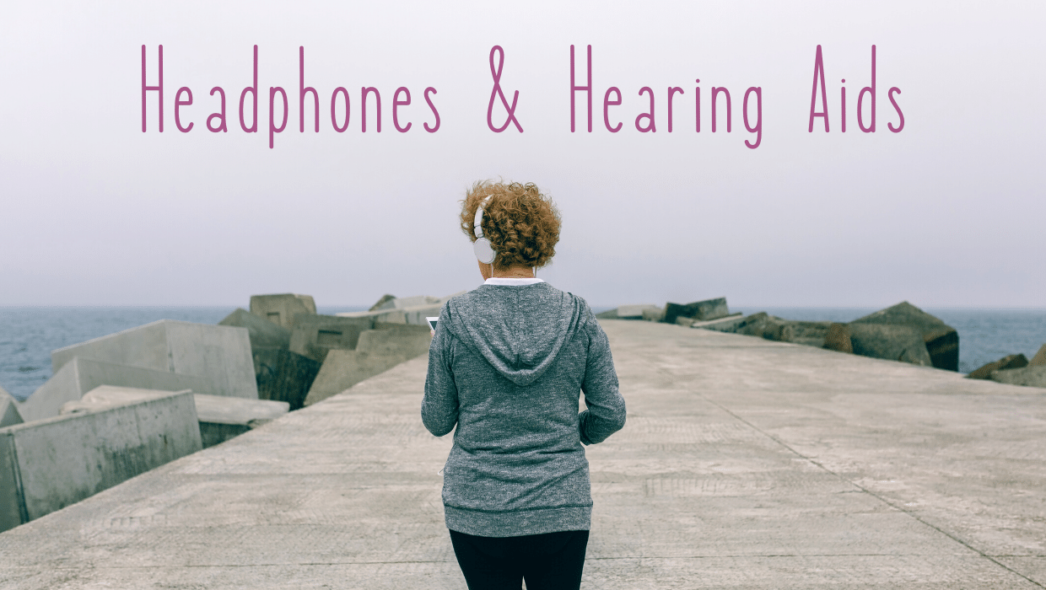Headphones are such a common way we listen to music, audiobooks, and podcasts. They have become part of our commute, exercise routine, and soundtrack to daily chores. But if you wear hearing aids, finding headphones that are comfortable and work effectively can be a bit tricky. Because your hearing device can be in the way of where headphones typically sit, there are several issues that this could create including: audio feedback, difficult to wear, poor sound quality etc. But by exploring the various options of headphones that are on the market and experimenting with your hearing aids, you can absolutely find headphones that work best for you! The type of headphones that will be an ideal fit will largely depend on the type of hearing aids you wear.
Types of Hearing Aids
So much about finding the right headphones depends on the fit, which if you wear hearing aids, will be shaped by the type of hearing device you use. Common types of hearing aids are:
- Behind the Ear (BTE): historically, this has been the largest type of hearing aid (though has been innovated and now smaller options are available) which sits behind the ear and connects to an earpiece that sits in your ear canal.
- Receiver in Canal (RIC): is similar to behind the ear devices in that one-part rests behind the ear and connects to the speaker that is in your ear canal.
- In the Ear (ITE): there are two types of ITE hearing aids. One that is molded to fit your outer ear in its entirety, or just the lower part of your outer ear.
- Completely in Canal (CIC): this hearing aid is molded to sit completely in your ear canal. This is the smallest and least visible type of hearing aid available.
- In the Canal (ITC): like the CIC, is molded but fits only partially in your ear canal.
Because of where the different components of your hearing aids rest, there are headphones that will work better with specific types.
Types of Headphones
Similar to many electronics today, headphones have experienced much innovation over the years and there are now a wide-range of options available. The main types of headphones are:
- Over the ear: these are the largest type of headphones and cover your entire ear.
- On the ear: these are work over the ear but the ear cups are smaller so your whole ear is not covered.
- In the ear: commonly known as earbuds, are the smallest type of headphones and sit in the ear.
- Bone conduction: this is a newer kind of headphones that work differently that other types of headphones which transfer sound into the ears. Bone conduction technology transmits sound through bone vibrations. These headphones sit on your outer ear.
The only type of headphones that are not compatible with hearing aids are of course, earbuds! But with the other types of headphones that exist, there are plenty of options.
The Best Headphones for Your Hearing Aids
- Bone conduction: these headphones are an effective option for most types of hearing aids besides behind the ear models. This type works best for ITE, ITC, CIC, and IIC hearing aids.
- On the ear: this works best for CIC and IIC hearing aids. They can also be used for other types of hearing aids but audio feedback is more likely to be an issue.
- Over the ear: these headphones work for several types of hearing aids – ITE, ITC, BTE, and RIC.
Though this is a general guide, it is best to also consult with your audiologist or hearing healthcare specialist to make sure you find the best match for you!
Tips for Wearing Headphones with Hearing Aids
Always being mindful and protecting your hearing health is important. A few tips to help you do so are:
- Invest in headphones with noise cancellation: this feature reduces background noise so that you do not have to increase the volume which protects your hearing.
- Be aware of volume: your hearing aids will amplify the sound from your headphones so be aware of how loud your headphones are.
- Take breaks: taking listening breaks is always a good practice that prevents you from overwhelming your hearing.
If you have questions about hearing health and best practices, we’re here to help! Contact us today to learn more.


